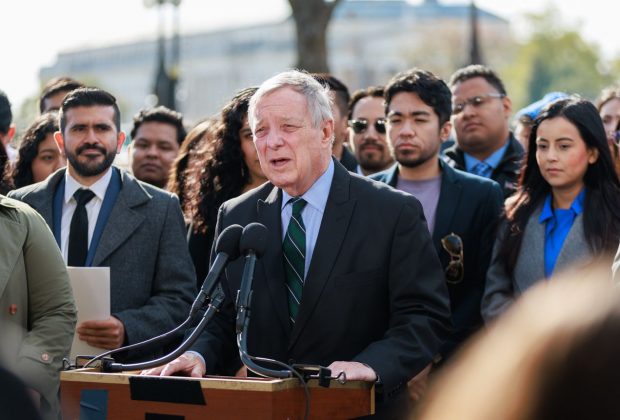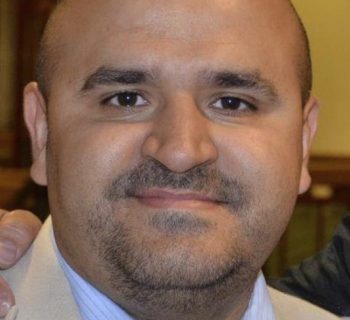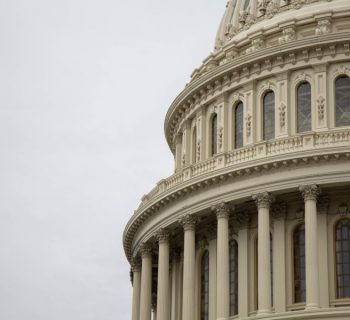Republicans are unlikely to agree to any changes to immigration rules without steps to bolster border security.
By Michelle Hackman | Wall Street Journal | DEC. 1, 2022 | Photo by Bryan Olin Dozier
WASHINGTON — With weeks left until they lose control of the House, Democrats are scrambling to see whether they can cobble together enough support to reach a deal allowing the young immigrants known as Dreamers to stay legally in the U.S.
But their plans face skepticism from Republicans, who say it would be imprudent to change any aspect of the immigration system without first taming record illegal crossings at the southern border. Concerns over those crossings have been heightened by an imminent court-ordered end to Title 42, the pandemic-era policy that has limited access to the border for asylum seekers for the stated purpose of reducing the spread of Covid-19. Government officials warn there could be an even larger border surge when the policy is lifted later this month.
Republicans plan to make border security a centerpiece of their oversight efforts in the next Congress—bringing Biden administration immigration officials to testify before House committees and potentially pursuing impeachment proceedings against Homeland Security Secretary Alejandro Mayorkas.
D emocrats also feel urgency to act because a lawsuit challenging deportation protections for Dreamers, under the program known as Deferred Action for Childhood Arrivals, appears headed for the U.S. Supreme Court, where both Democrats and Republicans expect those protections likely wouldn’t survive. DACA offers temporary protections to immigrants in the country without legal authorization who were 30 years old or younger when the program was announced in 2012.
“These young people could see their futures destroyed by a court decision, so I’d like to see us move in the next three or four weeks,” said Sen. Dick Durbin (D., Ill.), a longtime sponsor of the Dream Act, which would provide a path to citizenship for those young immigrants. He acknowledged that time frame was “pretty ambitious.”
A bipartisan group of senators have restarted negotiations to find a potential solution for the dreamers.
“We’re involved in ongoing discussions on border security, asylum reform, having that foundational discussion,” said Sen. Thom Tillis (R., N.C.).
Republicans are wagering that, with Democrats feeling increasingly frantic, they may be able to extract more concessions on the border. Some Republican aides also fear that the timing of a potential Supreme Court decision regarding the Dreamers could land in spring 2024, months before a presidential election, an outcome they would prefer to avoid.
Asked if a deal might be possible during Congress’s lame-duck session, Mr. Tillis said it was up to Democrats to agree to necessary border-security and asylum-reform provisions.
“If we can’t do that, as sympathetic as I am, and I’m on record for supporting a path for the DACA population, it’s an exercise we’re going to have to deal with next year,” he said.
Some GOP aides have floated the idea of moving ahead with a temporary solution for the Dreamers. That would involve authorizing the continuation of deportation protections and work permits under DACA for several years, essentially delaying the fight over a path to citizenship to sometime in the future, according to people familiar with their thinking.
Border security ideas under discussion include provisions from the Bipartisan Border Solutions Act, a bill negotiated last year by Sens. John Cornyn (R., Texas) and Kyrsten Sinema (D., Ariz.), the people said. That bill would create regional border processing centers along the southern border where some migrants could be held pending initial asylum screenings. It would also attempt to speed up the asylum process while increasing applicants’ access to lawyers to represent them.
Some Republicans have also insisted on creating mandatory detention for migrants who cross the border illegally, possibly until they receive an initial asylum screening, the people said.
The Dreamer talks are happening on a parallel track to negotiations over a separate package to create a new agricultural-worker visa program and provide a path to citizenship for the roughly one million farmworkers living in the U.S. illegally. That effort, led by Sens. Michael Bennet (D., Colo.) and Mike Crapo (R., Idaho), is likely to attract more Republican support, but could rankle some Democrats who would balk at helping another group of immigrants while Dreamers continue to go unaddressed.
“The ag worker issue, I can tell you, is a real crisis,” said Sen. John Thune from South Dakota, the No. 2 Senate Republican, referring to what supporters of a new visa program say is a shortage of year-round farm labor.
Rep. Kevin McCarthy (R., Calif.), who is the presumptive next speaker of the House once Republicans take control of the chamber, has said he doesn’t intend to bring up any immigration legislation for a vote other than measures to tighten access to the border.
T he Biden administration, meanwhile, is weighing ideas on how to manage the border once Title 42 is lifted in December, with officials exploring some policies conceived by the Trump administration that were previously thought by Democrats to go too far, according to people familiar with their thinking.
Ideas on the table include negotiating with other countries to accept more deportees, including asking Mexico to take back deported migrants from countries such as Venezuela and Nicaragua, which won’t accept back their own citizens, the people said. Officials are also working on a portal to allow asylum seekers from more countries to apply for asylum before coming to the U.S., with the possibility of receiving travel documents to fly to the country if they clear an initial screening, the people said.
The court initially set the Dec. 21 deadline to sunset Title 42 at the administration’s request last month. But in a court filing Tuesday night, lawyers with the Justice Department told the court they hadn’t yet decided whether to appeal the decision ending use of the policy altogether.







